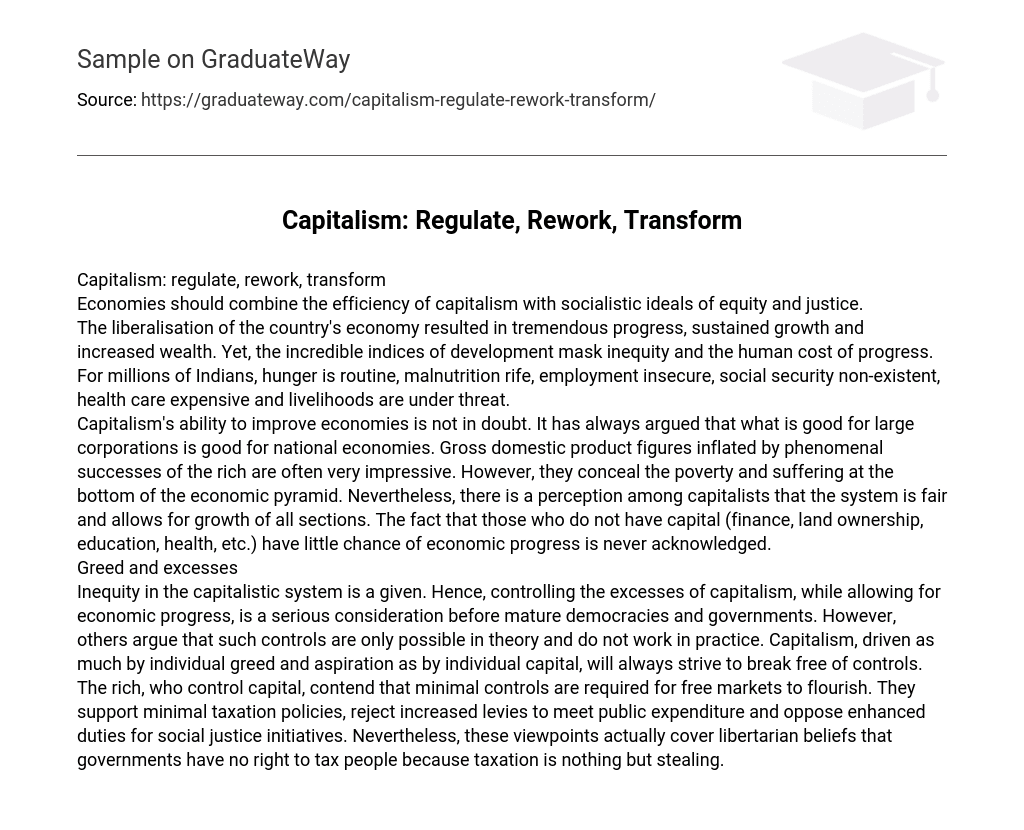Economies should combine the efficiency of capitalism with socialistic ideals of equity and justice. The liberalisation of the country’s economy resulted in tremendous progress, sustained growth and increased wealth. Yet, the incredible indices of development mask inequity and the human cost of progress. For millions of Indians, hunger is routine, malnutrition rife, employment insecure, social security non-existent, health care expensive and livelihoods are under threat.
Capitalism’s ability to improve economies is not in doubt. It has always argued that what is good for large corporations is good for national economies. Gross domestic product figures inflated by phenomenal successes of the rich are often very impressive. However, they conceal the poverty and suffering at the bottom of the economic pyramid. Nevertheless, there is a perception among capitalists that the system is fair and allows for growth of all sections.
The fact that those who do not have capital (finance, land ownership, education, health, etc.) have little chance of economic progress is never acknowledged. Greed and excesses Inequity in the capitalistic system is a given. Hence, controlling the excesses of capitalism, while allowing for economic progress, is a serious consideration before mature democracies and governments. However, others argue that such controls are only possible in theory and do not work in practice.
Capitalism, driven as much by individual greed and aspiration as by individual capital, will always strive to break free of controls. The rich, who control capital, contend that minimal controls are required for free markets to flourish. They support minimal taxation policies, reject increased levies to meet public expenditure and oppose enhanced duties for social justice initiatives. Nevertheless, these viewpoints actually cover libertarian beliefs that governments have no right to tax people because taxation is nothing but stealing.





